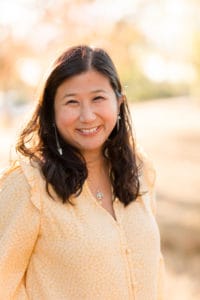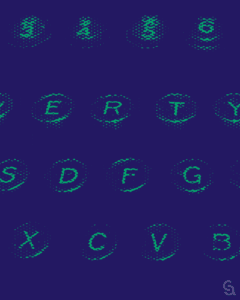CSA is running a series on Business & Justice with series editor Dorcas Cheng-Tozun. As you’ll see in this series, the work of justice is very much happening in the business sector through new technologies and creative business models and through cutting-edge design and savvy distribution. The business leaders you will hear from are building companies that are kingdom-centered and justice-oriented. In these businesses, creativity, generosity, and collaboration thrive, moving us closer to a more equitable distribution of resources and opportunities. Their work truly honors God’s call for us to contribute to the redemption of this planet, and it gives us great hope.
 Today, we welcome Matt Elsberry, President and Chief Ecosystem Officer at LivFul, an unconventional life science company that prioritizes health access and impact before maximizing profit. Matt asks the question, “Couldn’t the perception of business as mindless profit pursuers be challenged if the maximization of impact was trumpeted above the maximization of profit? What kind of company could be created?” Thus his work with LivFul.
Today, we welcome Matt Elsberry, President and Chief Ecosystem Officer at LivFul, an unconventional life science company that prioritizes health access and impact before maximizing profit. Matt asks the question, “Couldn’t the perception of business as mindless profit pursuers be challenged if the maximization of impact was trumpeted above the maximization of profit? What kind of company could be created?” Thus his work with LivFul.
While growing up near Lagos, Nigeria, my friend Hogan Bassey learned early on that insect-borne diseases were a normal part of life. He had contracted malaria several times by the time he was 10 years old; he knew many in his community who had suffered from this terrible disease.
Seven hundred million people are infected by insect-borne diseases every year. Malaria, just one of several dangerous diseases transmitted by mosquitoes, kills more than 600,000 people annually. Nearly six in 10 of those deaths are of children younger than 5 years old.
As a 10-year-old, Hogan wondered why someone hadn’t invented something he could personally put on his skin to keep insects from biting him. He didn’t know that, on the other side of the world, insect repellents had long existed and were easily available. The repellents just hadn’t reached Hogan’s community.
The lack of access to lifesaving technologies in much of the world is one of the greatest failures of the modern world. In 2012, Hogan co-founded the life science company LivFul to address this injustice. As the president and chief ecosystem officer at LivFul, I get to partner with them and our fantastic team to find creative ways to provide access to health solutions in the world’s most underserved communities. LivFul’s goal is to be the most trusted life science company in the world by expanding health access in low- and middle-income countries (LMICs).
We are developing a new business model in a healthcare industry that doesn’t have a very good track record. For-profit pharmaceutical companies, for example, tend to benefit financially when more people are sick and have to rely on their medication. We have seen this in the U.S. in how Purdue Pharmaceuticals encouraged doctors to freely prescribe the highly addictive painkiller OxyContin, even as overdoses from the drug skyrocketed. We see this in malaria-ridden parts of the globe, where it can be more profitable to treat malaria-infected patients than to eradicate malaria.
This is not at all who LivFul wants to be. Though LivFul is not a Christian company, we love it when our team members tie their personal desire for restoration to the restoration we are seeking to deliver as a company. In the Christian faith, Jesus is the ultimate force for justice, righteousness, and restoration. And, as we see in Isaiah 61 and Luke 4, Jesus invites his followers to take part in his work. I personally take very seriously this mandate to be healers and restorers on this earth. As a company, we don’t hesitate to publicly say that we prioritize health access and impact over maximizing short-term profit.
There’s another challenge that LivFul is trying to address that has helped shape our unique approach. When 10-year-old Hogan began wondering about using something to ward off insects, he concocted his own insect repellent in his home bathtub, using regular household products. But he had no way to widely sell or distribute his invention. Even if he had found someone to sell his product, they probably would have purchased all rights to the product, leaving Hogan without any long-term benefits from his ingenuity and creativity.
I know many entrepreneurs who have borne the blows of this blunt force injustice. At LivFul, our team is committed to the just treatment of capital and intellectual property. We collaborate closely with inventors, scientists, and engineers who have developed innovative health solutions. Instead of leaving them in the dust, we seek to come alongside them to provide the regulatory, manufacturing, marketing, and distribution infrastructure to enable their inventions to scale and reach potential customers. In collaboration with these product creators, we are building an entire ecosystem of partners who share a value for accessibility and affordability.
Hogan’s efforts as a child inspired LivFul’s flagship product: an insect repellent that is safe, effective, and affordable. Our patented, nature-inspired technology makes our repellent safe, eco-friendly, and longer lasting than any other insect repellent on the market. It is two to three times more effective than any other repellent currently available.
LivFul has partnered with some of the world’s largest companies to begin to broadly distribute our insect repellent. We are in the process of launching the product in Asia through a multibillion-dollar distribution partner. And during the COVID-19 pandemic, LivFul released COVID tests to help track and control the spread of the virus with several partners in multiple countries. With each partner we connect with, we invite them into our vision of the restorative role that businesses can play.
God doesn’t just bring restoration through churches and ministries. He can work just as effectively through his people as they apply their gifts and talents in the business sector. Hogan, myself and our entire team hope that we create a company worthy of the resources and opportunities in front of us. We want to invite imperfect people to pursue a mission bigger than themselves in order to serve others by seeking out and liberating health innovation for everyone.
 Series editor: Dorcas Cheng-Tozun is an award-winning writer, editor, communications consultant, and the author of two books on entrepreneurship. She previously served as the first director of communications for leading social enterprise d.light, which has provided solar-powered solutions to more than 125 million people with no or limited access to electricity. Her business writing has appeared in Inc.com, Christianity Today, Unreasonable, BlogHer, Grit & Virtue, and more. Dorcas currently serves as the editorial director of Made for PAX. Her next book, Social Justice for the Sensitive Soul, will be released in 2023. Connect with her at chengtozun.com.
Series editor: Dorcas Cheng-Tozun is an award-winning writer, editor, communications consultant, and the author of two books on entrepreneurship. She previously served as the first director of communications for leading social enterprise d.light, which has provided solar-powered solutions to more than 125 million people with no or limited access to electricity. Her business writing has appeared in Inc.com, Christianity Today, Unreasonable, BlogHer, Grit & Virtue, and more. Dorcas currently serves as the editorial director of Made for PAX. Her next book, Social Justice for the Sensitive Soul, will be released in 2023. Connect with her at chengtozun.com.


